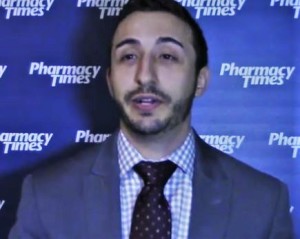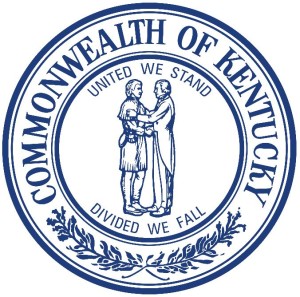- The Pharmacist’s Role on Interdisciplinary Health Care Teams (pharmacytimes.com)
Theodore Pikoulas, PharmD, BCPP, the Associate Director of Behavioral Health Pharmacy Programs for Community Care of North Carolina, discusses the roles that pharmacists can play on interdisciplinary health care teams.
- Ky. Senate Bill Aims to Stay Ahead of Biological Pharmaceuticals (wkms.org)
The Kentucky Senate...approved legislation in preparation for an expected increase in the use of biologically similar medications. The bill’s sponsor says these medicines can substantially save on costs when treating certain diseases...more medications for specific ailments are biological products made from living organisms. Bio-similar drugs, which are much cheaper, are being produced as interchangeable medicines...legislation allows pharmacists to dispense bio-similar drugs in the place of biologics without having to notify the doctor in advance...pharmacists would still be required to notify doctors of interchangeable bio-similar drugs within five days of dispensing. "If a patient has a reaction to a drug and I think I’m prescribing them drug A and you’ve given them drug B, and they may have to come to the hospital with a reaction, I’m the one treating them and assuming that liability," Alvarado (Winchester Senator, Doctor Ralph Alvarado) explained. "I have to know what drug you gave them..."
- ASHP Expresses Major Concerns with Proposed Revisions to Chapter <797> Standards, Offers Recommendations (ashp.org)
A number of proposed changes to the U.S. Pharmacopeial Convention General Chapter <797> Pharmaceutical Compounding — Sterile Preparations standards are incompatible with the medication-use process in patient care environments, ASHP stated in comments submitted to a USP expert panel earlier this month...ASHP points out that many of the new requirements are more appropriate for making drugs from bulk chemicals in compounding pharmacies or outsourcing facilities than for preparing medications for administration in patient care settings. The letter urges the expert panel to revise the proposals to better meet the urgent and unpredictable demands of the typical acute patient care setting...ASHP’s letter encourages USP to reorganize the standards into separate sections covering basic and advanced compounding as well as the preparation of special compounded sterile products such as radiopharmaceuticals and allergenic extracts.
- 7 Drug Shortage Findings Health-System Pharmacists Should Know (pharmacytimes.com)
Health-system pharmacists can play a critical role in managing drug shortages to prevent medical errors and adverse events...[Pharmacists] can often prevent shortages from impacting their institution by proactively managing inventory...When a shortage situation impacts hospital inventory, pharmacists should inform providers early...Pharmacists can also develop protocols for emergency department staff on what to do if a drug is not available. These protocols should include information about the best alternative medication, dosing recommendations, proper administration of the drug, and contraindications...Pharmacists can also take the following steps:
- To prevent errors, place specific labeling on a medication if a different concentration than what is normally stocked is being used.
- Help develop protocols for the ethical distribution of medications on shortage.
- Minimize waste of medications while compounding.
- Assist emergency medical services providers and directors with out-of-hospital protocols during shortages.
- Monitor and report adverse outcomes and medication errors.
...researchers examined data from the University of Utah Drug Information Service...Here are 7 things pharmacists should know about these findings:
- Of the 1789 drug shortages, about one-third (610) were within the scope of emergency medicine practice.
- From January 2008 to March 2014, emergency medicine drug shortages rose by 435%, from 23 to 123.
- The reason behind shortages remains unknown for around half of the 1789 cases.
- Infectious disease medications were hit hardest.
- Around 40% of drug shortages affect emergency care, according to a report from the Health and Human Services’ Emergency Care Coordination Center.
- The median shortage time for emergency medicine drugs was 9 months.
- The most common reasons for a drug shortage were related to manufacturing delays or problems.
- Drug diversion: Collaboration is key to detection, control (drugtopics.modernmedicine.com)
Diversion of controlled substances in the hospital setting can be detected with relative ease using current auditing software. But to confirm and correct diversion calls for close collaboration between pharmacy and nursing...The risks of diversions are not only to our patients, but to our employees and our institutions...Detecting diversion and addressing the problem calls for a collaborative process, with buy-in and investment from all stakeholders. Diversion is not just a pharmacy issue...Uncovering drug diversion clearly needs nursing support...the cost of diversion is more than just the dollar value. There is the erosion of reputation. The perception that diversion is easy at an institution is likely to lead to greater diversion...
- Do Prescribing Doctors Act on Pharmacist Recommendations? (specialtypharmacytimes.com)
Among their list of responsibilities, pharmacists serve as an important member of an interdisciplinary care team to protect patient health and safety while minimizing costs...Existing literature shows that by communicating recommendations to prescribing doctors, pharmacists can help to measurably reduce costs, control chronic diseases like hypertension, diabetes, and hyperlipidemia, and improve patient outcomes...The prevalence of prescribing doctors acting upon pharmacist recommendations has been previously studied, with results ranging anywhere from 31% to 81%. Most assessments find that a pharmacist’s recommendation succeeds in modifying a doctor’s prescription about 50% of the time...Doctors are more likely to accept pharmacist recommendations intended to save costs (versus safety or guideline adherence), and they are more likely to accept recommendations to change or stop a medication (50%) than they are to start a new medication (41.7%)...
- Collaborative Practice Agreements Open Opportunities, Liabilities for Pharmacists (pharmacytimes.com)AMCP - Where We Stand - Collaborative Drug Therapy Management (amcp.org)
...48 states and the District of Columbia, pharmacists’ scope of practice allows for collaborative practice agreements with prescribers—although each state has its own rules and nuances about what, where, and with whom pharmacists can collaborate... Antonio Ciaccia...Ohio Pharmacists Association... the state’s new collaborative practice agreement laws will have a major impact on all pharmacy practice settings, including compounding, long-term care, hospital, ambulatory, community, and consulting. While he believes that pharmacists have "more than adequate training" to perform the services permitted under the new law... Because of the variations in state pharmacy practice acts, pharmacists can best defend themselves against such liability claims by taking the time to familiarize themselves with the authority granted to them under their collaborative practice agreement to ensure that they do not exceed that authority. Pharmacists may also check with their malpractice insurance carrier...Despite the increased potential for malpractice and liability issues...expanded collaborative practice agreement law as a victory for prescribers, pharmacists, and patients...engagement of the pharmacist on the health care team is a great driver for improving outcomes...
- Rattled by drug price increases, hospitals seek ways to stay on guard (washingtonpost.com)
Doctors at the University Hospitals of Cleveland see an immediately recognizable symbol pop up alongside certain drugs when they sign in online these days to prescribe medications for patients: $$$$$...The dollar signs, affixed by hospital administrators, carry a not-so-subtle message: Think twice before using this drug. Pick an alternative if possible...The Zagat-like approach is just one of the strategies hospitals nationwide are using to try to counter drug costs. It was inspired...by... the University Hospitals system’s vice president of pharmacy services, who saw unexpected price hikes wreak havoc on his budget last year...The industry...notes that drug spending accounts for only about 10 percent of the country’s health-care costs and that published list prices do not reflect the steep discounts and rebates that companies may offer. Hospitals generally purchase drugs from wholesalers at costs below the list price, although wholesale prices are subject to increases...Hospital officials insist that even when sudden price increases occur, patients receive access to the medicines they need. But the unpredictable increases wedge their institutions financially...They can’t immediately pass on the cost if a drug gets more expensive because reimbursement rates for certain procedures already have been set by Medicare and private insurers. That means sharply higher prices can lead to losses..."I want drug companies to make money. I need them to make money, or I don’t have any ammo..."But there has to be a balance, a middle ground. If this keeps happening . . . it’s only a matter of time before we get to a point where we have to choose less desirable medications than what’s out there."
- 3 compliance rules pharmacies must know (drugtopics.modernmedicine.com)
With 2016 well underway, pharmacies of all sizes should review recent regulatory updates to ensure compliance with rules already in effect, and preparation for those to be implemented soon. Three, in particular, warrant a close look.
USP 797 Pharmaceutical Compounding – Sterile Preparations. The comment period for USP’s proposed revisions for compounding sterile preparations closed January 2016, and comments are now under review. If finalized as-is, USP 797 may publish by November 2016, at which time pharmacies will face significant changes...
USP 800 Hazardous Drugs – Handling in Healthcare. This was approved and published in February 2016. It defines hazardous drug containment processes to promote patient safety, worker safety, and environmental protection...
Drug Supply Chain Security Act. Enacted in November 2013, this sets forth requirements to build electronic systems to identify and trace certain prescription drugs in the United States. Pharmacies should consider which aspects of the law they’re held accountable for now, and which aspects they will be held accountable for in the future...
- VTE Guideline Weighs in on Newer Oral Anticoagulants (ashp.org)Antithrombotic Therapy for VTE Disease: CHEST Guideline and Expert Panel Report (journal.publications.chestnet.org)
A revised guideline from the American College of Chest Physicians favors the use of dabigatran, rivaroxaban, apixaban, or edoxaban over traditional vitamin K antagonist or low-molecular-weight heparin therapy for the long-term treatment of venous thromboembolism in patients without cancer..."Antithrombotic Therapy for VTE Disease," released online in December by the publishers of Chest, is the 10th published version of the guideline, which updates a guideline released in early 2012. In that version of the guideline, VKA or LMWH therapy was preferred over the two available "new oral anticoagulant drugs" for the long-term treatment of pulmonary embolism or deep vein thrombosis...






